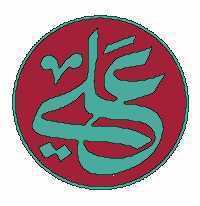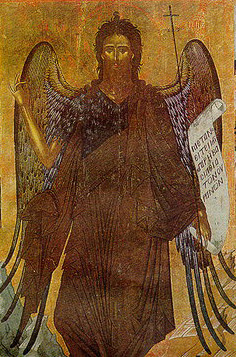The Gate of Heaven

This morning was like the morning of that first poem, the retreat in the guest house, ten years ago. The barn-that is, the garden house, which from my room seemed to me beautiful and mysterious-had become the very mystery in which I was hidden. It was the same hour. Perhaps the years were no more. The tired man was on his tower among the little boxes. There was a quilt for covering plants in a garden. It smelled of rats. Also the chicken houses had been moved. The outward orchard is all down. The wry trees are gone. The earth is sown with new grass.
Famous but unknown, tired but powerful, a man without virtue and without prayer, impotent, hungry, at peace, unable to speak, looking at the valley: Who is like unto God! God, my God, here is a traitor who loves You beyond speech! And yet I have no love. I have no moon, I have no valley.
I sat by the orchard heaters until I smelled all over of oil and flame. I saw the moon through the flame. Without heart, without brain, the senseless man has prayed for fire and apparently received none. Everywhere is beauty. Where are You, O my God? I was ashamed of singing on the road to the barn, but what else could I have done? Alive and dead I climb the glorious barn. The mud of my feet going up is the mud of my hands going down. I will go down more wretched than I went up because more glorious. This barn cannot be known. It is Mount Lebanon, where Father Charbel Makhlouf saw the sun and moon.
I leaned my chin upon the windowsill and prayed to You, my Lover, in the following terms:
"When the pie was opened
The birds began to sing.
Was not this a dainty dish
To set before the King?"
My God, Who is like You? How can I compare the visits of your children with the silence that dwells on the hills? Yet I have made their hearts suffer by loving them. I have defiled many lives with my impertinence. We have all gone away and have begun over and over to pray, and I believe conversation is a punishment for false mysticism. How can we help ourselves? But I am once again made clean by frost and morning air, here in the presence of the moon.
As long as I do not pretend I suffer, as long as I do not trade in false coin, nor claim that I have already disappeared-my brothers' prayers can always mend me. The windows are open. Let the psalms fly in. Prime each morning makes me safe and free. The Day Hours sustain me with their economy, by night I am buried in Christ. At 3 a.m. I wear the old white vestment and say the Mass de Beata. Through the gaps in my own prayer come the psalms of the Night Office that I discovered in the woods yesterday afternoon.
There, there is the crooked tree, the moss with my unspoken words, those pines upon that cliff of shale, the valley living with the tunes of diesel trains. Nobody knows the exact place I speak of and why should I tell them? For every man is his own Jacob, wakes up at the foot of his own ladder. And thus he arises in his own unrecognizable house, his gate of heaven.
What happens after that? Do you put down "The rest is silence" and close the book and sell it to the public? That would be a lie. For Jacob afterward married. His first wife, the fertile one, was ugly. He served fourteen years. He bred sheep. He fled from Rachel's father. His flocks drank from the well where Jesus later sat and spoke with my elder sister.
We too have all married over and over again, and yet we have no husband. But thank God for the hill, the sky, the morning sun, the manna on the ground which every morning renews our lives and makes us forever virgins.
Taken from "The Sign of Jonas" by Thomas Merton




























